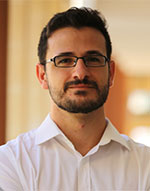Tumor Heterogeneity
What is Tumor Heterogeneity?
Understanding tumor heterogeneity is one of the key goals in cancer research and oncology these days. Intriguingly, it is a major challenge for clinicians regarding diagnosis and therapy.
Tumor tissue is a complex and heterogeneous structure consisting of different cell types which all contribute to the tumor mass as well as to the tumor microenvironment, where immune cells play a crucial – yet not fully understood – role. Employing the MMI CellCut Laser Microdissection system, researchers can specifically excise morphologically different areas of the tumor to understand the cellular heterogeneity, for example in the inner tumor mass compared to the outer tumor areas. In addition, based on immunohistochemistry or immunofluorescence staining, invading immune cells can be identified within the tumor area and dissected for further analysis to understand their cellular heterogeneity within the cancer immune cell population. Moreover, single cell analysis will help to decipher the immune cells’ role in cancer as well as their interaction and regulation mechanisms. Learn more about the MMI CellCut

"Our translational cancer research within the Department of Pathology, led by Prof. Godfrey Grech, focuses on particular mechanisms of tumorigenesis for the identification of novel tumour biomarkers and therapeutics. Using a novel approach that utilises a custom-designed technique coupled with Laser Microdissection, we have successfully isolated and measured the RNA expression of specific cell populations from breast cancer tissues to support our investigations of underlying mechanisms.
The MMI CellCut enables us to selectively isolate specific tumour cell populations based on morphology from H&E stained FFPE sections for RNA analysis. Using this methodology, we have isolated distinct malignant clones within heterogeneous tumours as well as microdissected normal breast duct tissue to establish physiological expression levels. Based on gene expression, we classify breast cancer tumours to identify biomarkers towards novel effective therapeutics."
Grech Department of Pathology
Faculty of Medicine
University of Malta
Intra-tumor heterogeneity in cancer diagnosis and therapy
For clinicians, the main challenge is the so-called intra-tumor heterogeneity. Within the main tumor mass as well as among and within metastases, different sub-clones might have evolved carrying a diverse mutational burden thus reflecting the mutational and cellular heterogeneity in cancer. Targeting one certain cancer mutation with a specific therapy might lead to progression of another cancer mutation in a different sub-clone. Therefore, it’s essential to fully characterize the tumor regarding its mutational heterogeneity to identify the most promising therapy for the cancer patient. Laser microdissection is a perfect tool to excise single tumor cells to investigate their mutational burden. Different staining technologies can help to identify tumor cells as well as different sub-clones within a heterogeneous tumor mass. This technology can be applied in any cancer type which displays tissue heterogeneity, such as breast cancer, lung cancer or prostate cancer. Learn more about the MMI CellCut
Additionally, tumor heterogeneity is suggested to be fully reflected in Circulating Tumor Cells (CTCs). CTCs can be easily accessed by liquid biopsies and are offering new ways for evaluating therapy progress as well as to understand relapse mechanisms. Read more about Liquid Biopsy and CTCs and the MMI CellEctor system for isolation of single CTCs
In order to investigate all aspects of cancer heterogeneity, the MMI CellCut and the MMI CellEctor system can be integrated on one microscopy platform. Click here for further information on customized products.